With the help of the Abertis Foundation, Sebas Lorente gives talks on road safety to raise awareness among students of the consequences of a bad decision behind the wheel
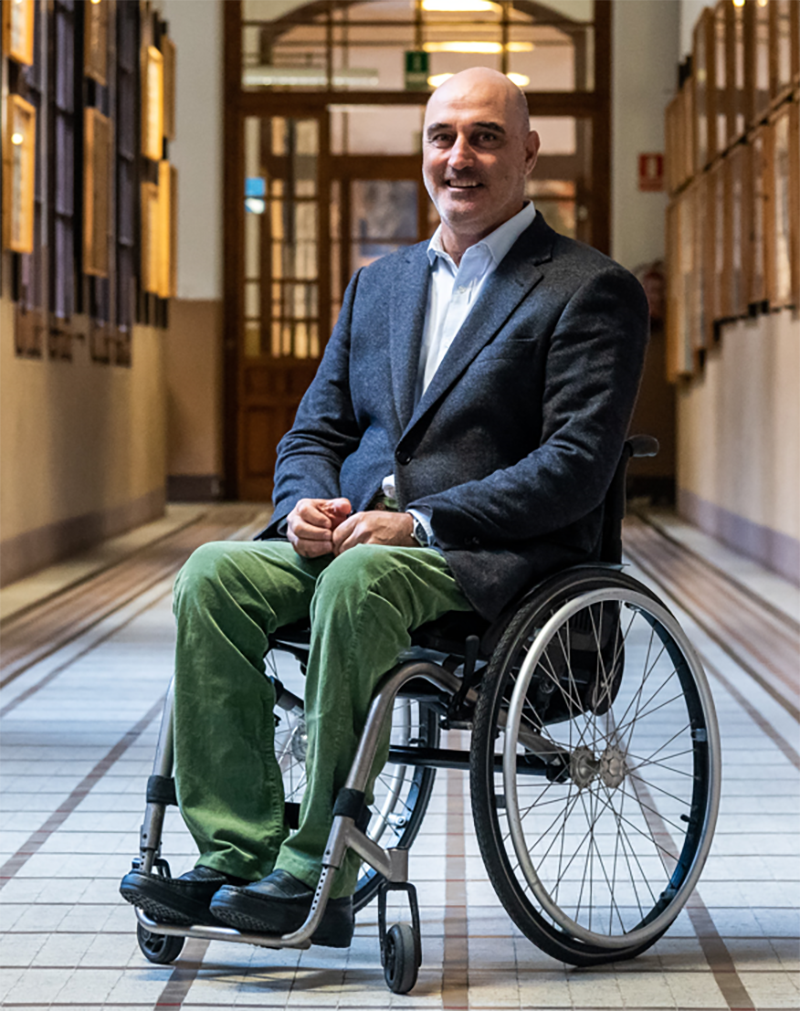
The life of Sebas Lorente changed in an instant. He was 20 years old and he went out partying in Barcelona with a friend. It was going to be a great night, like the one in Raphael’s song, but a bad decision got in the way. If he had stayed overnight in Barcelona instead of returning to Sitges, where he lived, as he had initially thought, it would have been a perfect evening. But in the end he chose option B: returning by car with his friend in the early hours of the morning and after having had a drink. And then it happened. The car he was traveling in went off the road. When the accident happened, he was asleep in the back seat. But he will never forget that awakening. It was the screeching of the tyres trying to grip the asphalt that woke him. And in just a few seconds, all kinds of thoughts ran through his head: he thought about his parents, he wondered what it would be like to die, he even imagined the possibility that the car would end up in the sea with his friend and him inside… Although all those thoughts vanished with the roar of the impact.
It didn’t take long before he found out that this experience would deprive him of the ability to walk forever. But far from considering it a tragedy, something that would mark him for life in a dramatic way, Sebas faced it in a different way.“At no point did I think I had to overcome something, that I had to be strong, that I had to forget everything that had ended for me or that I had to focus on what lay ahead of me. What I mean is that there was no “preparation” process for my reaction. No, my reaction was absolutely natural and spontaneous, and all I did was get on with my life. I still had my family and friends; I was alive, I had not suffered any brain damage, I still had my sight, hearing, smell, taste, and only a partial loss of touch; I had full mobility from the waist up. And I was twenty years old and had my whole life ahead of me!”
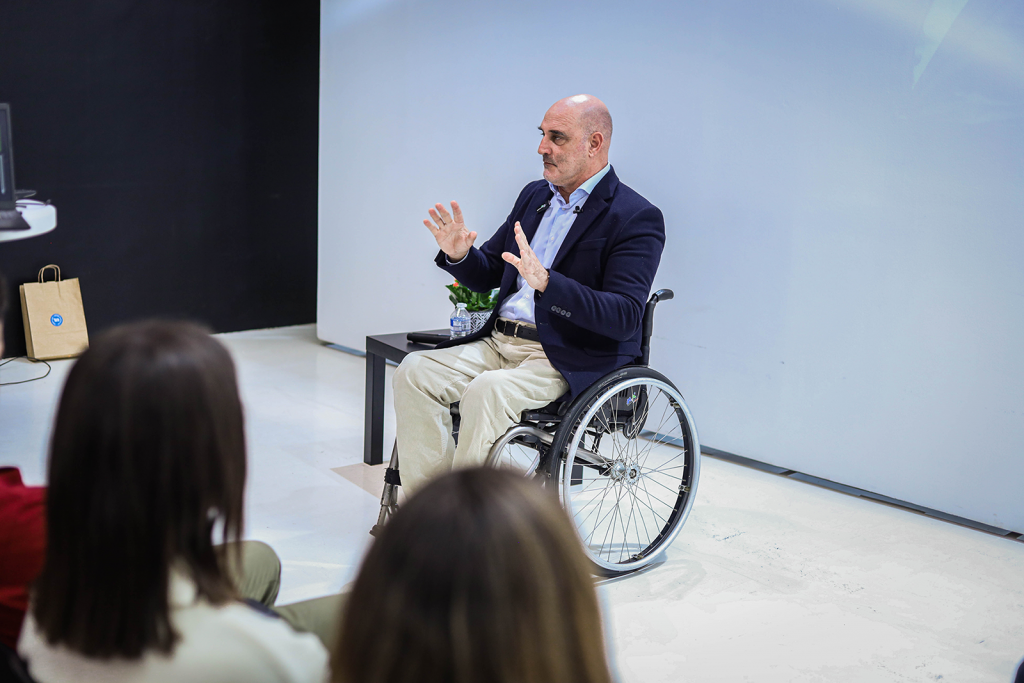
These words, taken from 8 days getting up in #AGoodMood, the book that Sebas Lorente would write years later, sums up his philosophy of life. A way of understanding our passage through this world that consists of giving thanks for what we have, instead of constantly complaining about what is beyond our reach.
Sebas says that this vision has helped him to face the challenges that, like any other person, he encounters in his daily life, both in the workplace and in his personal life. That is why a few years ago he decided to leave his career as a lawyer to dedicate himself body and soul to giving lectures with which he tries to “communicate and transmit to others my way of understanding life and everything that has helped me to improve as a person or, at least, to try to do so” as he himself explains. Although Sebas prefers to avoid the adjective “motivational” when defining the talks he gives in companies and professional meetings: “I don’t motivate anyone. I just share my experience and open the door to the reflection that each one can or wants to do.”
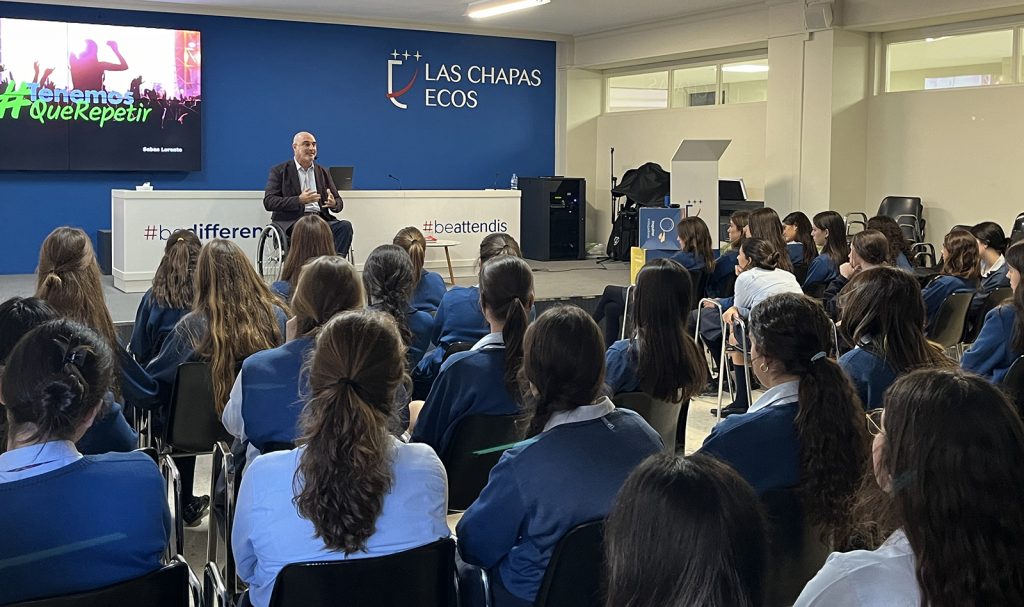
Some time after his debut in this field, he began his collaboration with the Abertis Foundation. “Through a very good friend I met the director of the Foundation, who from the beginning was very clear that my story could help raise awareness among other people, especially young people.” That first meeting finally led to the # WeMustDoItAgain lecture program, which Sebas Lorente has been giving free of charge in schools and institutes since 2018, with the help of the Abertis Foundation. “At first we only aimed them at juniors, between 17 and 18 years old, because at that age they start to go out at night, moving in environments where alcohol and drugs are very accessible. Later we also expanded to a university audience.
During the first year alone, Sebas visited 15 schools in Barcelona. Word of mouth increased the number of schools and students. And all the schools repeated the course in subsequent years, and in some cases, the lecture was included in tutorials. Currently, Sebas visits more than 100 schools throughout Spain every year.
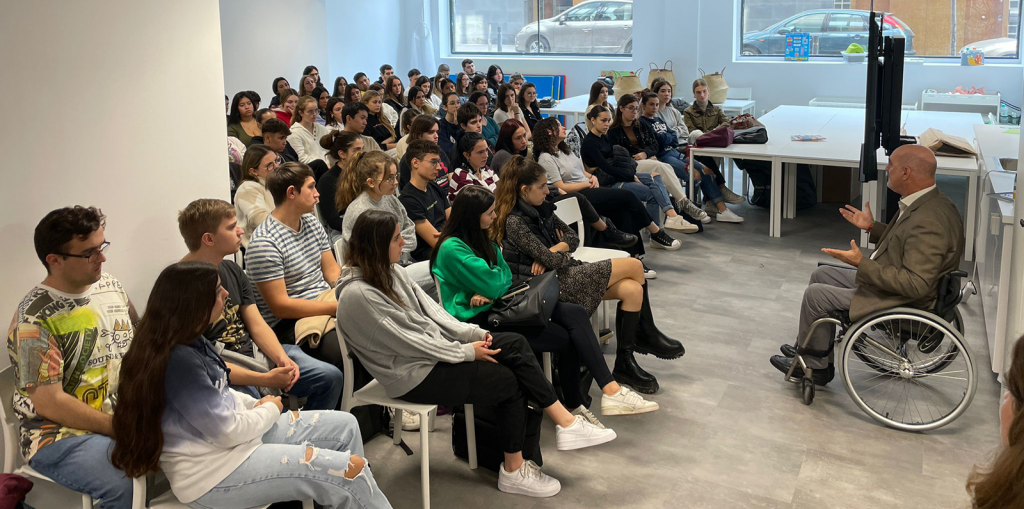
The feedback he receives after the talks still impresses him. But he is not alone: “The teachers are often amazed because the sessions last an hour and a half, and they cannot believe that the kids remain so attentive for all that time. The messages that the students send me directly still give me goosebumps. They thank me and say, “what you are doing is worth it.”
The Barcelona native believes he knows why his talks are so well received: “I speak to them in their own language. I don’t give long speeches, which is what they expect, but I tell them about my experience, what happened to me that night when I was more or less their age. A night similar to the one they had the previous weekend or are going to have the next weekend. And I tell them about the consequences that can come from making a bad decision like the one I made. And from there, let them decide.”
“I always tell them,” he adds, “that the conversation is not about alcohol or drugs. It’s about what I didn’t have at that time: personality. And the new generations have plenty of personality. And since I know they have it, I tell them to bring it out when the time is right.”
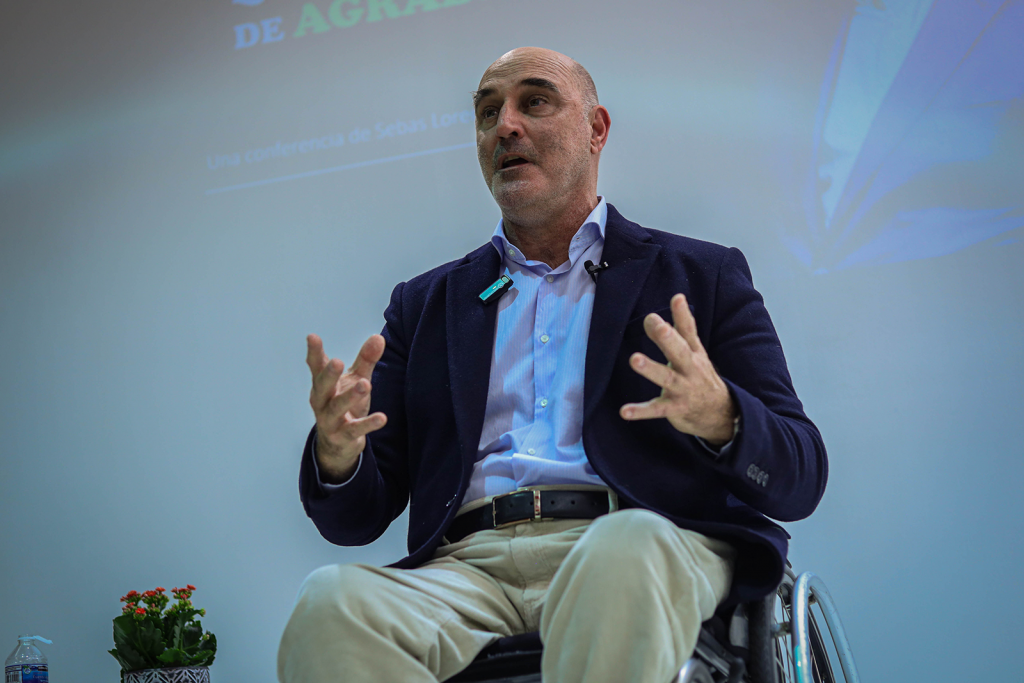
Sebas Lorente believes that when it comes to preventing accidents, everything counts. Traffic campaigns, initiatives like his, or even fines—they all raise awareness. “Talks like mine also have a medium and long-term effect because if you manage to raise awareness in kids this age, you ensure that they continue to be aware in the future, when they are adults.”
Whatever it takes for good decisions to allow the phrase that gives the title to these conferences to be fulfilled many times: #WeMustDoItAgain. “It refers to nights like the one I almost had that day. The kind that you remember in the morning, and that you talk about with your friends, and say, “We must do it again.”